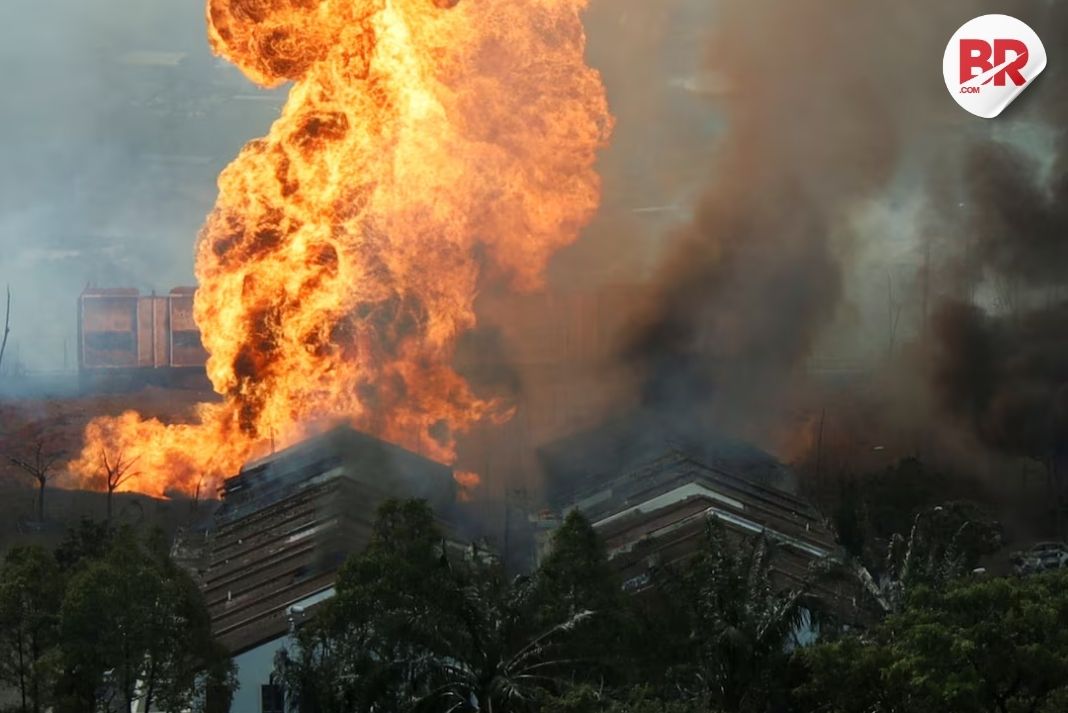
Khamenei’s Public Rebuke: A Bitter Critique of U.S. Hypocrisy
In a rare public statement, Iranian Supreme Leader Ali Khamenei mocked former U.S. President Donald Trump and accused the U.S. of hypocrisy when it comes to nuclear weapons. The remarks came after backchannel talks in Oman aimed at reviving the stalled nuclear negotiations between the U.S. and Iran. Despite reports that the meeting was held in a “respectful” atmosphere, Khamenei’s rhetoric revealed ongoing tensions and deep mistrust between the two nations.
Double Standards in Global Politics
Khamenei’s criticisms focused on what he sees as double standards in the global approach to nuclear weapons.

He slammed Western nations, particularly the U.S., for denying independent countries like Iran the right to defend themselves while overlooking nuclear-armed countries like Israel, which has not formally declared its nuclear arsenal.
According to Khamenei, the hypocrisy of Western powers is evident in their policies, which treat some nations’ nuclear capabilities as a threat while ignoring others.
This double standard, Khamenei argues, is a key part of the West’s efforts to maintain global dominance, with smaller nations being denied the ability to defend themselves through advanced technologies like nuclear weapons. For Iran, this is not just a matter of military power—it is a matter of national sovereignty and self-reliance.
Also Read: From CIA Coup to Nuclear Standoff: The Secret History of US-Iran Hostility
Media Bias and Iran’s Global Image
Beyond military issues, Khamenei also targeted Western media for what he described as biased portrayals of Iran. In his eyes, the global media often undermines Iran’s reputation, presenting the country in a negative light.
He believes that these portrayals are designed to isolate Iran from the international community and tarnish its image, particularly in the context of the nuclear debate.
This criticism of media bias fits into the larger narrative that Iran is fighting a battle on multiple fronts—militarily, diplomatically, and in the court of public opinion. Khamenei’s harsh words reflect his frustration with the way Western media handles Iran’s nuclear ambitions, despite the country’s adherence to international agreements.
Also Read: ‘Big Change Is Coming’: Trump Signals Iran Policy Shift, Global Powers on Edge
Iran’s Military Strength as a Deterrent
One of the central points of Khamenei’s public rebuke was the praise he heaped on Iran’s military capabilities. He emphasized Iran’s self-reliance in building up its military strength, including the development of missile systems and other defensive technologies. According to Khamenei, this self-sufficiency is not just a matter of national pride—it is a critical deterrent against foreign aggression.
Khamenei’s rhetoric stresses the idea that Iran does not need external powers to safeguard its interests. He often refers to Iran’s military strength as a key factor in maintaining stability and preventing foreign intervention, particularly from the U.S. and its allies.
Oman’s Mediation and Diplomatic Hopes
The backchannel talks in Oman, which were intended to revive the Joint Comprehensive Plan of Action (JCPOA), the nuclear deal that the U.S. withdrew from in 2018, are seen by some as a rare diplomatic opening.
Oman has historically played a mediating role between the U.S. and Iran, and many hope that these talks could lead to a breakthrough in the strained relationship.
However, Khamenei’s skepticism about the talks is evident. He referred to the negotiations as a “trap,” a clear indication of the deep mistrust that exists between the U.S. and Iran.
This skepticism is not new; it stems from the U.S. withdrawal from the JCPOA and the subsequent imposition of harsh sanctions on Iran. For many in Iran, these actions were seen as betrayals, leading to a lack of faith in U.S. promises and intentions.
Also Read:
Internal Challenges to Diplomacy
The road to any potential agreement is further complicated by internal resistance within Iran. Hardliners in the country remain deeply suspicious of any engagement with the West, particularly after the U.S. walked away from the nuclear deal.
These factions argue that Iran should not compromise on its sovereignty and national interests to appease Western powers. As a result, any diplomatic breakthrough faces significant opposition from within Iran itself.
The Future of U.S.-Iran Relations
While Oman’s mediation provides a glimmer of hope for resolving tensions, Khamenei’s public rebuke makes it clear that the prospects for a breakthrough remain uncertain. The deep-rooted distrust between the two nations, combined with internal political challenges, suggests that any agreement will require significant concessions and trust-building efforts.
Khamenei’s remarks show that Iran is not prepared to make any moves that would compromise its sovereignty or national security. As tensions continue, it remains to be seen whether diplomatic efforts can overcome the obstacles that lie ahead.
Also Read: US-Russia Swap: Woman Freed After $50 Sparks 12-Year Sentence












